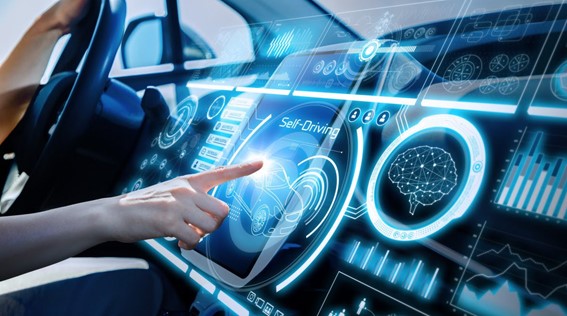Excuse me, a revolution is on the way

On October 15, Cruise – a subsidiary of General Motors that develops autonomous cars – was granted a license from the State of California’s DMV to carry out tests on autonomous vehicles without a driver. This was not the first license of its kind, but the company will be the first to put it into practice on the streets of a major city in the US. It means that, very soon, Californians will live with cars without drivers, steering wheels, or pedals.
The description of this scene may seem like something out of a science fiction film, but it is part of the mobility revolution that we are experiencing.
Safer vehicles
And this transformation will not be reduced to the strangeness of seeing a car ‘walking alone’. Human error is still the leading cause of accidents. Self-driving cars can help save many of the 1.25 million people worldwide who die in traffic accidents each year. We want cleaner air to preserve our health and our planet for future generations, which is why today’s cars are more efficient and are becoming electric. And finally, we want the freedom to visit friends and family and explore new places without traffic jams. Connected and shared vehicles can help end congestion that wastes our time and money.
The good news is that we have the ambition, talent, and technology to create a world with zero accidents, zero emissions, and zero traffic jams.
Electric, shared, and autonomous
And we are taking essential steps in that direction. GM alone is investing more than $ 20 billion in developing technologies that will enable us to reach that future. Technologies related to electrification, connectivity, sharing, and autonomous cars.
The car of the future is 100% electric, that is, it does not emit harmful gases; it is 100% connected, not only to the internet – our cars now have their wi-fi – but also to the ecosystem (traffic lights, banks, commercial establishments, etc.) and, mainly, to other vehicles. IoT will be essential for big cities to flow better to avoid congestion.
Circular economy
And cars will be shared. Today, sharing has suffered a small setback due to the health crisis we are experiencing; the trend is towards a shared future.
Because, with autonomous driving technology, especially in large urban centers, it is possible to have fewer cars driving to have more people moving.
Today, a private car is stopped more than 90% of the time in garages and parking lots. With autonomous and shared, vehicles will have much higher utilization rates. We will need fewer cars to move more people.
The benefits that this real mobility revolution will bring us are closer than we think. And although it seems like a small detail, the California DMV license in the United States is an important achievement in this path that will lead us to a healthier and more sustainable future for everyone.
Destaques
- Global Alliance Launches Recognition Program for Young Communicators
- Alejandro Cornejo Montibeller Joins the Latin American Regional Council of the Global Alliance
- LiderCom Meeting Discusses International Expectations for COP30
- Sports as an instrument of Change
- Aberje Launches Newsletter with Economic Panorama
ARTIGOS E COLUNAS
Carlos Parente A comunicação precisa de um olhar menos vazioLeonardo Müller Bets no Brasil: uma compilação de dados e estimativasLeila Gasparindo A força da Comunicação Integrada: unindo Influenciadores e assessoria de imprensaAgnaldo Brito Diálogo Social e Comunicação Corporativa: A Construção do Valor na Era dos DadosHamilton dos Santos O esporte na mira da crise climática




























